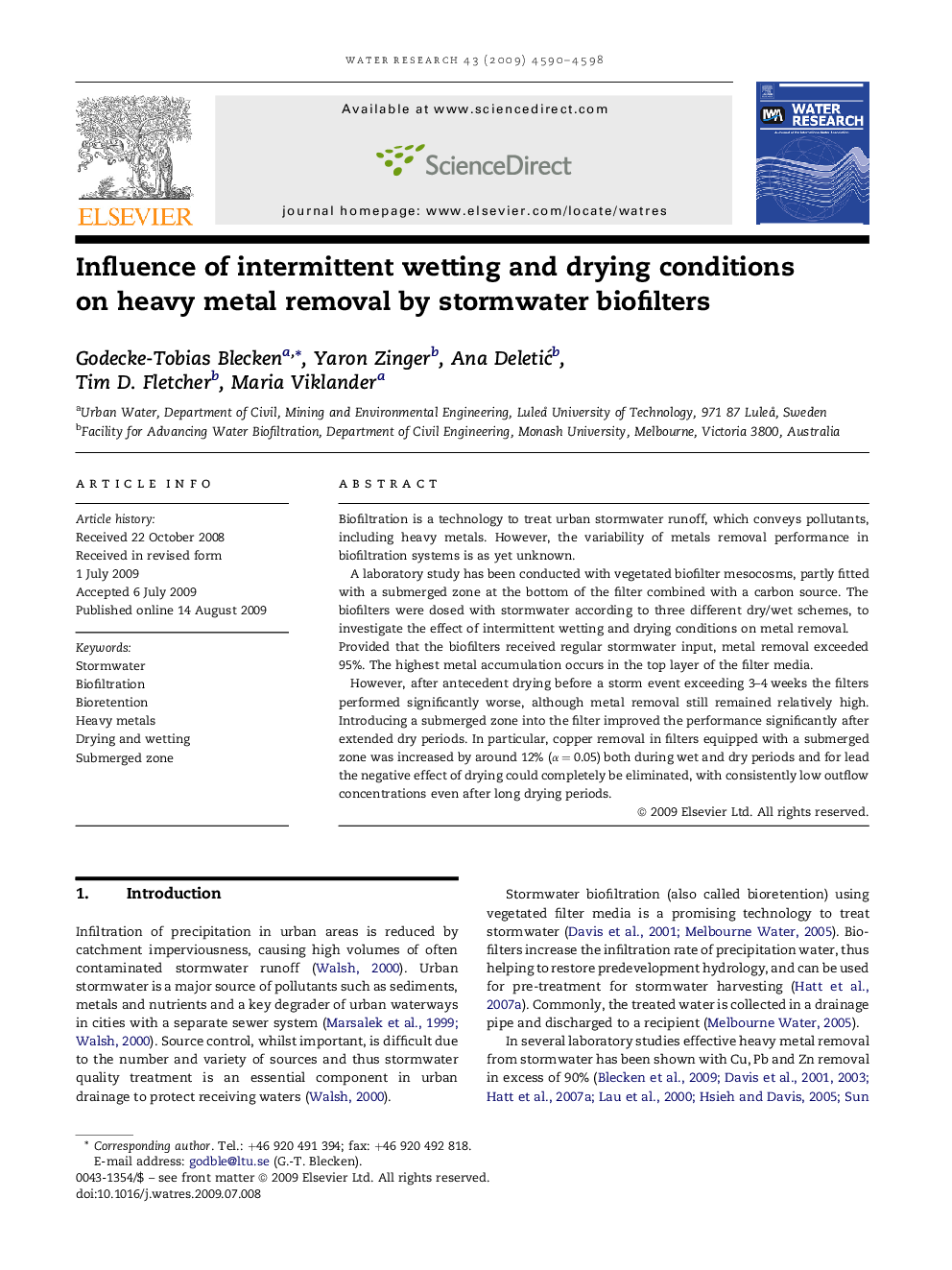| Article ID | Journal | Published Year | Pages | File Type |
|---|---|---|---|---|
| 4485509 | Water Research | 2009 | 9 Pages |
Biofiltration is a technology to treat urban stormwater runoff, which conveys pollutants, including heavy metals. However, the variability of metals removal performance in biofiltration systems is as yet unknown. A laboratory study has been conducted with vegetated biofilter mesocosms, partly fitted with a submerged zone at the bottom of the filter combined with a carbon source. The biofilters were dosed with stormwater according to three different dry/wet schemes, to investigate the effect of intermittent wetting and drying conditions on metal removal.Provided that the biofilters received regular stormwater input, metal removal exceeded 95%. The highest metal accumulation occurs in the top layer of the filter media. However, after antecedent drying before a storm event exceeding 3–4 weeks the filters performed significantly worse, although metal removal still remained relatively high. Introducing a submerged zone into the filter improved the performance significantly after extended dry periods. In particular, copper removal in filters equipped with a submerged zone was increased by around 12% (α = 0.05) both during wet and dry periods and for lead the negative effect of drying could completely be eliminated, with consistently low outflow concentrations even after long drying periods.
